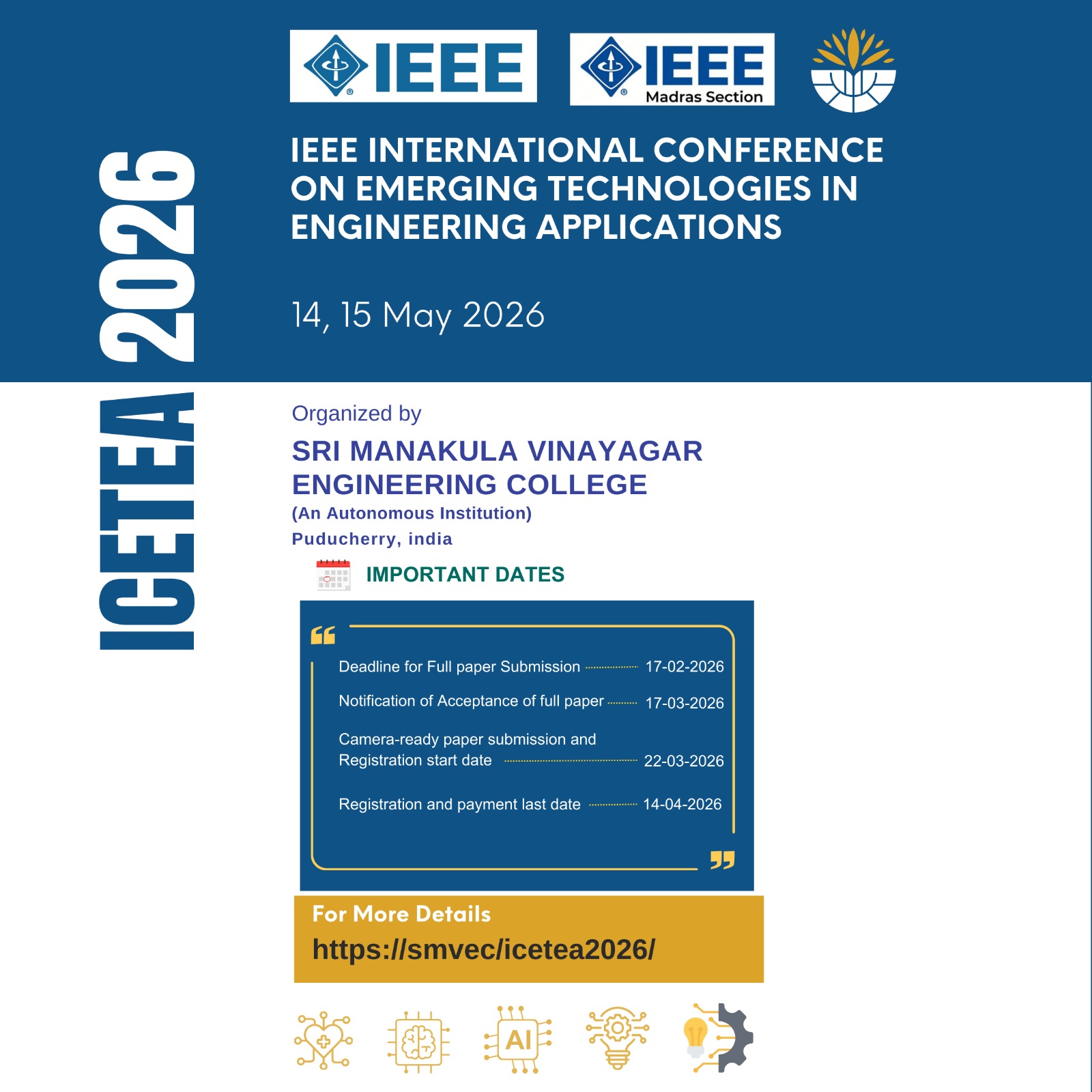What if you could combine engineering with healthcare to save lives? Curious how machines in hospitals are designed, built, and maintained? A Biomedical Engineering Degree opens doors to careers where technology meets medicine.
From designing prosthetics to innovating diagnostic tools, this degree equips you to impact lives and shape the future of healthcare. This blog explores what you can do with a biomedical engineering degree.
Understanding Biomedical Engineering
Biomedical engineering is an interdisciplinary and rapidly evolving field that combines principles from engineering, biology, medicine, and technology to develop innovative healthcare solutions. It focuses on the design and development of medical devices, diagnostics, therapeutic systems, and prosthetics that improve patient outcomes and quality of life.
Biomedical engineers collaborate with doctors, researchers, and manufacturers to bring concepts like artificial organs, wearable health monitors, surgical robots, and advanced imaging equipment to reality. This field addresses current medical needs and anticipates future challenges in healthcare, such as personalised medicine and AI diagnostics.
Key Stats:
- India produces over 15,000 biomedical engineers annually, fuelling hospitals and medtech firms.
- Biomedical devices reduce patient recovery time by up to 30%, according to WHO studies.
- R&D spending in medical technology is growing at a rate of 5 – 7% per year globally.
Career Paths with a Biomedical Engineering Degree
A Biomedical Engineering Degree equips students with a multidisciplinary foundation in engineering, biology, and medicine. This unique blend prepares graduates to work at the intersection of healthcare and technology, opening up diverse career opportunities. Here’s a closer look at some prominent career paths:
1. Clinical Engineer
Clinical engineers manage and maintain medical technologies in hospitals and healthcare facilities. They play a critical role in ensuring devices such as ventilators, dialysis machines, and MRI systems function optimally and meet safety standards.
Degree relevance:
A Biomedical Engineering Degree provides essential knowledge in medical instrumentation, electronics, and hospital management.
Salary range: ₹4 to ₹7 LPA in India
2. Product Development Engineer
These professionals are involved in the full lifecycle of medical devices from concept and design to prototyping, testing, and manufacturing. They work alongside R&D teams to develop innovative products like robotic surgical tools or wearable health monitors.
Degree relevance:
This role requires strong fundamentals in design engineering, materials science, and human anatomy, all covered in biomedical engineering programmes.
Salary range: ₹6 to ₹10 LPA in India
3. Regulatory Affairs Specialist
These experts ensure medical devices comply with national and international regulations (e.g., CDSCO in India, FDA in the U.S.). They prepare detailed documentation for approvals and audits.
Degree relevance:
A Biomedical Engineering Degree covers medical safety standards, device regulations, and ethical practices, which are crucial for this role.
Salary range: ₹5 to ₹8 LPA in India
4. Research & Development (R&D) Engineer
R&D engineers work in labs or private companies to create innovative solutions such as artificial organs, smart prosthetics, or diagnostic tools.
Degree relevance:
Concentrating on problem solving and research methodology, biomedical engineering prepares students for experimental design and data analysis.
Salary range: ₹5 to ₹9 LPA in India
5. Biomaterials Developer
They design materials compatible with the human body for use in implants, tissue scaffolds, and drug delivery systems.
Degree relevance:
The course content typically includes polymers, tissue compatibility, and surface engineering – key skills for this field.
Salary range: ₹6 to ₹9 LPA in India
6. Manufacturing Engineer
They focus on designing and optimising the manufacturing process for biomedical devices like syringes, imaging systems, and lab equipment.
Degree relevance:
Courses in production, quality assurance, and CAD tools are essential parts of a Biomedical Engineering Degree.
Salary range: ₹4.5 to ₹7.5 LPA in India
7. Independent Consultant
Consultants advise hospitals, startups, and government agencies on medical technology selection, process improvements, and implementation strategies.
Degree relevance:
A complete biomedical engineering background, along with project management skills, prepares one for consulting roles.
Salary range: ₹8 to ₹15 LPA in India
8. Biomedical Scientist/Researcher
Working in laboratories or academic institutions, they perform experiments to understand diseases and improve health technology.
Degree relevance:
The research oriented modules in the programme prepare graduates to pursue M.S. or Ph.D. and enter academia or biotech research.
Salary range: ₹5 to ₹10 LPA in India, depending on qualifications.
With a Biomedical Engineering Degree, students from institutions can explore a range of roles in both technical and managerial capacities. The field offers stability and growth and the satisfaction of contributing to healthcare and human well-being.
Higher Education Opportunities
Pursuing higher education after earning a Biomedical Engineering Degree can significantly broaden your career prospects, deepen your expertise, and open doors to specialised fields. It allows you to stay at the forefront of innovation, research, and leadership in healthcare and engineering.
A) Master’s Degree (M.S.)
A Master’s program allows students to dive deeper into core areas such as biomechanics, biomaterials, medical imaging, neural engineering, or tissue engineering. With a strong emphasis on research and advanced coursework, this degree equips students for technical roles in R&D, hospitals, or med-tech firms.
Many students also undertake internships and collaborative projects with hospitals and biomedical companies during their M.S.
B) Doctorate (Ph.D.)
A Ph.D. is ideal for those who aspire to lead research, develop novel biomedical technologies, or teach at the university level. Doctoral candidates work on solving real world healthcare challenges, ranging from developing artificial organs to creating next-generation diagnostic tools.
This path often includes publishing in peer-reviewed journals and presenting findings at international conferences.
C) Medical Degree (M.D.)
Combining a biomedical engineering background with an M.D. creates a unique profile of a physician engineer. These professionals are equipped to identify clinical needs and invent or refine medical technologies, enhancing both treatment efficacy and patient care.
D) MBA
An MBA can complement engineering skills with business acumen. This combination is ideal for careers in biotech management, healthcare consulting, or entrepreneurship, enabling graduates to lead teams, manage projects, or launch biomedical startups.
Globally renowned institutions like Johns Hopkins University, Georgia Institute of Technology, and MIT offer innovative programs that nurture future leaders in biomedical engineering.
The Indian Context: Opportunities in Chennai and Beyond
India’s healthcare space is undergoing a transformative shift driven by rising health awareness, technological advancements, and government initiatives like Make in India. This momentum has led to a growing demand for biomedical engineers nationwide, especially in metro cities like Chennai, known for its medical infrastructure and educational hubs.
A) Hospitals
Hospitals in Chennai, such as Apollo Hospitals and Fortis, require biomedical engineers for equipment procurement, regular maintenance, and innovative upgrades to ensure patient safety and operational efficiency.
B) Medical Device Companies
Medical Device Companies such as Trivitron Healthcare and Medtronic India provide roles in R&D, product design, quality testing, and navigating the complex regulatory landscape for medical devices.
C) Research Institutions
Research Institutions like IIT Madras and CSIR – Central Leather Research Institute actively engage biomedical engineers in intersecting research in biomaterials, prosthetics, and wearable health tech.
Leading tech firms like HCL Technologies and Cyrix Healthcare Pvt. Ltd. are also expanding into healthcare, opening new job avenues for biomedical engineering graduates.
SMVEC: Your Gateway to a Promising Career
At SMVEC, we offer a complete Biomedical Engineering Degree program designed to equip students with the knowledge and skills required to excel in this field. Our curriculum integrates theoretical learning with practical applications, ensuring that graduates are industry ready.
Why Choose SMVEC?
- Experienced Faculty: Learn from experts with extensive academic and industry experience.
- Modern Laboratories: Gain practical experience with advanced biomedical equipment.
- Industry Collaborations: Benefit from partnerships with leading healthcare organisations.
- Placement Support: Gain access to opportunities with top companies in the biomedical sector.
Our alumni have successfully pursued careers in various domains, including clinical engineering, research, and product development.
Final Thoughts:
A Biomedical Engineering Degree offers a versatile and rewarding career path, blending the realms of engineering and healthcare. With the right education and training, such as that provided by SMVEC, you can contribute to innovations that improve lives and shape the future of medicine.
FAQs:
1. What kind of jobs can I get with a Biomedical Engineering Degree in India?
A Biomedical Engineering Degree in India can lead to careers in hospitals, research labs, medical device companies, and tech firms. Roles include clinical engineer, product design specialist, R&D engineer, and regulatory affairs executive.
2. Is Biomedical Engineering a good career choice in India?
Yes, biomedical engineering is a growing field in India due to the rising demand for advanced healthcare technologies. With the expansion of the medical device industry and hospital infrastructure, career prospects are strong and diverse.
3. Can I work in hospitals after earning a Biomedical Engineering Degree?
Absolutely. Hospitals hire biomedical engineers to manage medical equipment, ensure safety compliance, and innovate patient care technologies.
4. What higher studies can I pursue after a Biomedical Engineering Degree?
You can opt for an M.Tech, MS, or PhD in biomedical engineering, or pivot to specialised areas like biomechanics or artificial intelligence in healthcare, or even pursue an MBA for managerial roles in healthcare technology.
5. Which companies hire biomedical engineers in Chennai and across India?
Top recruiters include HCL Technologies, GE Healthcare, Trivitron Healthcare, Medtronic, Philips Healthcare, and hospitals like Apollo and Fortis.




